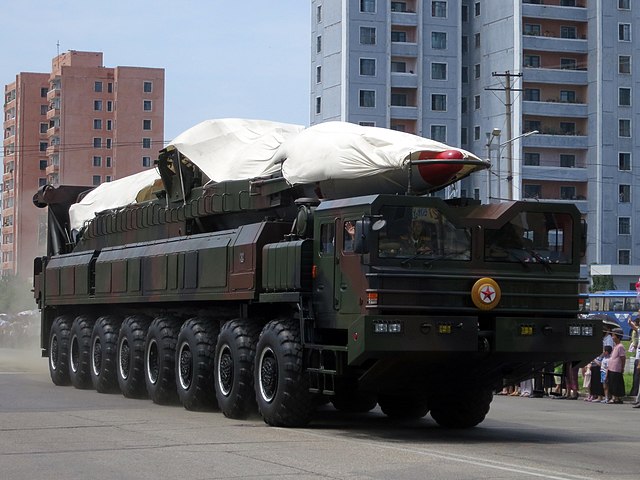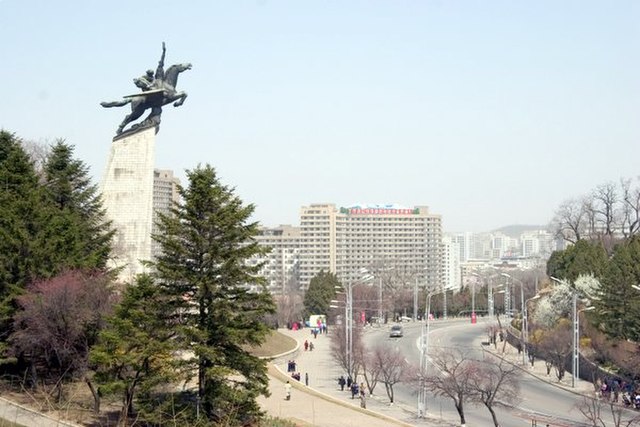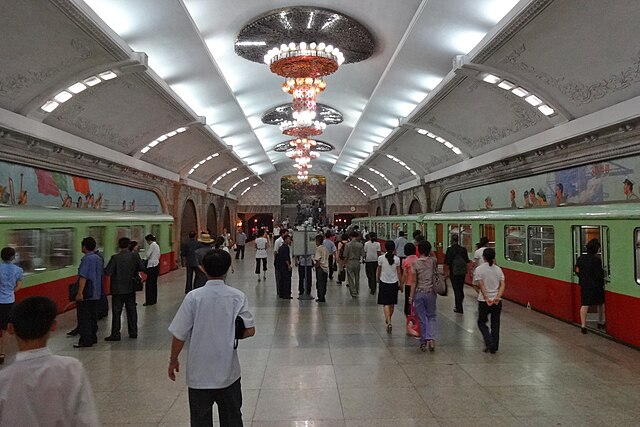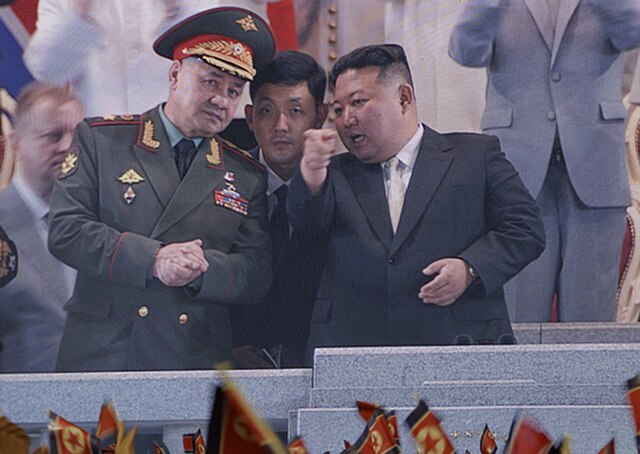North Korea and weapons of mass destruction
North Korea has a military nuclear weapons program and, as of 2024, is estimated to have an arsenal of approximately 50 nuclear weapons and sufficient production of fissile material for six to seven nuclear weapons per year. North Korea has also stockpiled a significant quantity of chemical and biological weapons. In 2003, North Korea withdrew from the Treaty on the Non-Proliferation of Nuclear Weapons (NPT). Since 2006, the country has conducted six nuclear tests at increasing levels of expertise, prompting the imposition of sanctions.
Military parade in Pyongyang, 2015 featuring soldiers with CBRN equipment
North Korea's ballistic missile
Kim Jong Un, with what North Korea claims is a miniaturized silver spherical nuclear bomb, at a missile factory in early 2016.
5 MWe experimental reactor at Yongbyon Nuclear Scientific Research Center
North Korea, officially the Democratic People's Republic of Korea (DPRK), is a country in East Asia. It constitutes the northern half of the Korean Peninsula and borders China and Russia to the north at the Yalu (Amnok) and Tumen rivers, and South Korea to the south at the Korean Demilitarized Zone. The country's western border is formed by the Yellow Sea, while its eastern border is defined by the Sea of Japan. North Korea, like its southern counterpart, claims to be the legitimate government of the entire peninsula and adjacent islands. Pyongyang is the capital and largest city.
Statue of Chollima Movement in Pyongyang
Pyongyang Metro with bomb shelter functions
Kim Jong Un with Russian Defence Minister Sergei Shoigu during the ceremonies marking the 70th anniversary of the end of the Korean War, in Pyongyang, 27 July 2023
Kim Tok Hun Premier of the Cabinet of the Democratic People's Republic of Korea








